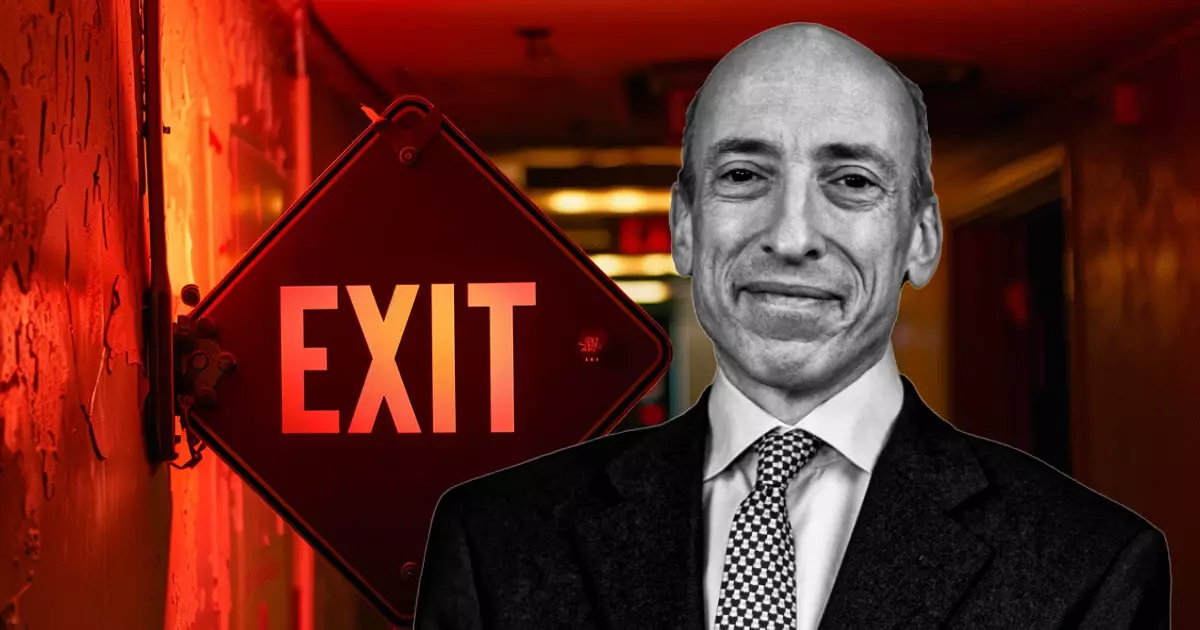Gary Gensler’s impending resignation as Chairman of the U.S. Securities and Exchange Commission (SEC) on January 20, 2025, marks a significant milestone not only for the agency but also for the broader financial landscape in the United States. His tenure, which began in April 2021, will be remembered for its regulatory fervor, especially in relation to the rapidly evolving cryptocurrency industry. Gensler described his time at the SEC as an “honor,” highlighting the agency’s mission-driven ethos. His approach has been characterized by both vigorous enforcement and an attempt to bring clarity to uncertain waters surrounding digital assets.
Under Gensler’s leadership, the SEC has adopted a proactive stance on investor protection and market integrity. He championed a series of enforcement actions against major cryptocurrency platforms, such as Binance and Coinbase, for allegedly functioning as unregistered securities brokers. These moves underscored Gensler’s commitment to ensuring accountability within the crypto sector, even as he faced substantial pushback from industry stakeholders who argued such regulations could stifle innovation. Yet, the approval of spot Bitcoin and Ethereum exchange-traded funds (ETFs) during his tenure revealed a more nuanced perspective, as regulatory bodies sought to balance consumer protection with market readiness.
This duality of Gensler’s leadership reflects the broader challenges facing regulators in a time marked by rapid technological advancements. The U.S. Court of Appeals for the District of Columbia Circuit’s ruling that questioned the SEC’s previous assertions concerning market manipulation sheds light on the ongoing tensions between regulatory bodies and judicial oversight—an aspect that Gensler may not have fully anticipated.
As President-elect Donald Trump prepares to take office alongside Gensler’s exit, the SEC faces a critical juncture. With the Commission currently split between Democratic and Republican appointees, the nomination of a new chairman carries profound implications. Possible successors include prominent figures such as Brian Brooks and Dan Gallagher, each of whom brings a unique perspective that could steer the SEC in a markedly different direction. The selection will not only influence the agency’s approach to cryptocurrencies and emerging technologies but also shape the regulatory landscape for finance as a whole.
The potential successors, notably Hester Peirce, already known for her advocacy of leniency toward innovation, could cite arguments for a balanced approach that promotes growth while ensuring consumer safety. The decisions made in the coming months will inevitably affect investor confidence and the long-term direction of financial regulation.
Gensler’s exit may catalyze a pivotal transition for the SEC as it grapples with modern-day financial challenges and technological evolution. As regulatory frameworks are re-examined and reshaped, the impact of new leadership will be critically scrutinized by investors, market participants, and policymakers alike. The ongoing dialogue between regulation and innovation remains crucial, as the financial market landscape continues to evolve at an unprecedented pace. Future SEC leadership will need to carefully navigate these waters, aiming to protect investors while fostering an environment conducive to growth and innovation.


Leave a Reply